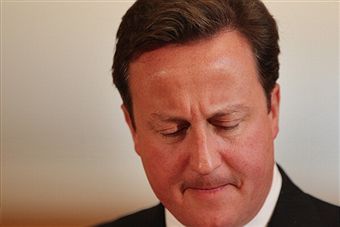 Andrew Mitchell was recently informed that the public is split 50:50 for and against
increasing the international aid budget to £12 billion in 2013. A YouGov@Cambridge poll for Politics
Home suggests that he should get some better advice. The poll shows that while the public is indeed split fairly evenly on the general principle of aid (41 per cent in favour, 38 per cent against),
when it comes to the government’s promise to increase the aid budget by a third, those against outnumber those for by more than 2 to 1.
Andrew Mitchell was recently informed that the public is split 50:50 for and against
increasing the international aid budget to £12 billion in 2013. A YouGov@Cambridge poll for Politics
Home suggests that he should get some better advice. The poll shows that while the public is indeed split fairly evenly on the general principle of aid (41 per cent in favour, 38 per cent against),
when it comes to the government’s promise to increase the aid budget by a third, those against outnumber those for by more than 2 to 1.
The policy is by no means a Cameroon brainchild. In 1970 the United Nations set the target for government aid at 0.7 per cent of GNI; in 2004 the Labour government pledged to meet it by 2013 and in 2006 David Cameron signed the Tories up to that pledge. It was a key part of the wristbands and huskies “detoxification” of the ‘nasty party’. Unfortunately for Cameron, he seems to have misjudged public sentiment on this issue. Only 7 per cent say the decision to increase the aid budget makes them more favouable towards the Conservatives, while 37 per cent say it makes them less favourable.
Why the negativity? There is a good deal of concern about the effects of international aid. 49 per cent say it “enhances the power of bad governments in developing countries”, while 55 per cent believe it “discourages governments in developing countries from spending money on their own people”. There is also widespread scepticism as to how well aid is spent. The strongest argument against aid seems to be that it “fails to reach ordinary people in the developed world, and is wasted by corrupt governments”: 69 per cent agree.
People are also not swayed by the “it’s in our own interests” arguments for aid. Half reject the arguments that it helps reduce terrorism, and 44 per cent say it does not reduce immigration into the UK. In addition, the plurality that believes we have a “moral responsibility” to give aid is surprisingly small: 38 per cent agree, while 33 per cent disagree. On the other hand, 41 per cent agree with the claim that “International aid improves diplomatic relations with countries in receipt of aid, whose support we may need in the future” – this seems to be the most convincing argument in favour of aid (just 22 per cent disagree).
The poll also raises a further worry about Cameron’s policy: that it may actually reduce charitable donations to developing nations. A full quarter of respondents say the that if the government does increase aid, they would be less likely to donate to an overseas aid charity, including 17 per cent who would be much less likely to.
Cameron and Andrew Mitchell are determined that aid will not be the setting for yet another U-turn, but they have to convince the public that it shouldn’t be. This poll suggests that they should ditch the arguments that it “keeps us safe” and focus on the benefits in diplomacy and trade. They also need to show that the extra aid money won’t go to waste. The public do seem supportive of some aid projects (47 per cent approve of the Prime Minister’s announcement of £814m for vaccines for 80m children, for example), but aren’t sure that all aid goes to such good causes. Dispelling that view is vital if the policy is to do what Cameron inteneded it to: improve his party’s electoral fortunes.






Comments